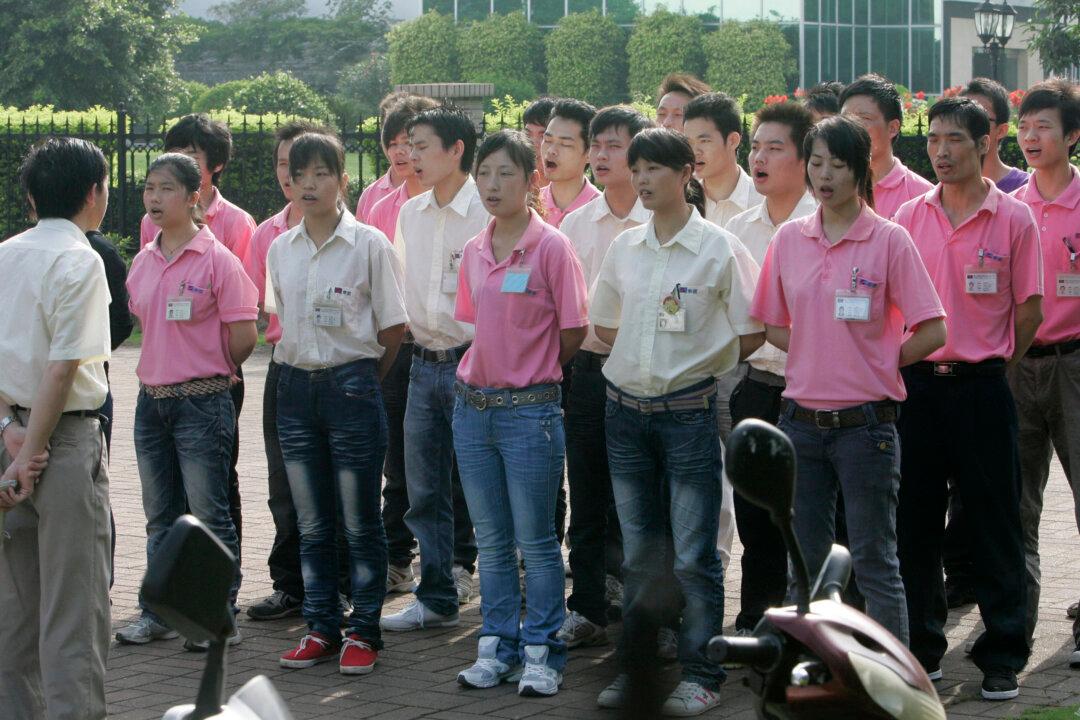It’s been chiseled into the minds of Chinese bureaucrats—they must “maintain social stability” to climb the career ladder. This amounts to a license for clamping down on any sign of disturbance. Increasing numbers of strikes have been met with vigorous suppression.
About a third of the reported protests in the country over the past year are over labor issues. Most are staged by workers from China’s countryside who migrated to cities in search of work. They make up about 60 percent of China’s industrial workforce, providing almost all the workers in the export industries that fill stores around the globe with goods.
Guangdong Province, just north of Hong Kong, contains the biggest concentration of such factories in China and has witnessed the largest surge in worker protests.
Most demands are over unpaid wages, underpaid wages or poor work conditions, due to employers breaching the law. Workers take to the streets only when management and local authorities ignore their grievances. They block roads, forcing authorities to pay attention. In the first quarter of 2015, 11 large factory strikes in Guangdong escalated into violence between workers and police, estimates one Hong Kong NGO.
Unlike workers in other Asian countries such as Cambodia, Indonesia, and Bangladesh, Chinese workers had not challenged government policies—targeting the government for an increase in the legal minimum wage or asking to eliminate China’s household registration system that consigns migrant workers to temporary residence in cities and denies them access to public services. They had not demanded a right to set up alternatives to inactive branches of China’s one official trade union run by the government, which normally lets factory managers select union representatives.
Workers Demand
A transformation in labor protests is underway. For the first time, some workers demand wage raises far above the minimum wage. Some have become aware that they need representation, and thus some protests demand to hold democratic workplace union elections to replace the management-controlled union branch.
Last year, in the largest strike in Guangdong of the last three decades, more than 40,000 workers went on strike at a vast shoe factory in the city of Shenzhen. The factory, owned by the Taiwanese firm Yue Yuen, the world’s biggest footwear manufacturer, produces running shoes for major brands.
The strikers had an unusual demand: that the company pay for back years of unpaid employer contributions toward their retirement, which in Shenzhen legally should be 13 percent of employees’ total wages.
In early April this year, 5,000 workers at another shoe factory demanded payment of years of unpaid employer contributions to a housing subsidy fund, also mandated by law and worth 5 percent of salary. For many years almost all workers from the countryside were in their 20s, and they paid little attention to the retirement or housing funds, which are seldom respected by factory owners.
With some retaining their jobs into their 30s and 40s, many realize they have been short-changed. The accumulated debts owed to thousands of workers, running into many millions of dollars, have serious implications for company finances. One survey suggested that only 20 percent of enterprises may contribute the full amount.
An Older Workforce
Workers’ worries are exacerbated by the fact that some foreign investors, always scouring for low-wage investment sites, have been relocating manufacturing from Guangdong to cheaper inland provinces or overseas to South and Southeast Asia.
Vietnam, for instance, has overtaken China as the leading exporter of garments to U.S. market. Some cities in Guangdong like Dongguan, once a favorite destination of Taiwanese manufacturers, are now deindustrializing. When relocating, some companies simply refuse to honor their obligations, leaving workers stranded with unpaid wages and years of unpaid employer contributions to the funds.
